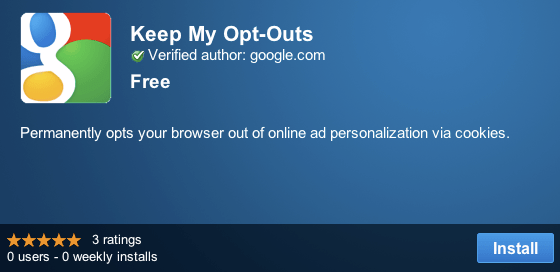 Google and Mozilla are working to get their respective Web browsers to comply with the Federal Communications Commission’s (FCC) recommendation for a “do not track” feature to allow Internet users to opt-out of online ad tracking.
Google and Mozilla are working to get their respective Web browsers to comply with the Federal Communications Commission’s (FCC) recommendation for a “do not track” feature to allow Internet users to opt-out of online ad tracking.
Dozens of online ad companies already have self-regulated opt-out programs — including the 15 largest ad companies. However, the current opt-out services are far from a fool proof way of guarding privacy on the Internet. For one, the opt-out settings are easily lost; when a brower’s stored cookies are cleared, the opt-out settings are also done away with, too.
Another challenge to the effectiveness of the self-regulated opt-out programs is that it is difficult to keep settings up-to-date as new online advertisers are always popping up, meaning users constantly have to monitor their opt-out settings to make sure they’re current.
“A better ‘Do Not Track’ mechanism is a browser extension that means you can easily opt out of personalized advertising from all participating ad networks only once and store that setting permanently,” wrote Google product managers Sean Harvey and Rajas Moonka in a blog post.
Google is calling its do not track feature “Keep My Opt-Outs.” The plug-in permanently stops ad companies — those that are a part of a self-regulated program — from tracking users’ online activity. Google says that the plug-in’s source code is open source and will be offered to third-party developers. The company says it plans to bring the service to other browsers in the future. The extension is available now and can be downloaded here.

Mozilla is also jumping on the opt-out bandwagon. The open-source championing company has announced a feature for its Firefox browser that will notify online advertisers that a user doesn’t want to be tracked. The service will use a HTTP header to transmit users’ preference to advertisers and It will then be up to companies to comply.
“We believe the header-based approach has the potential to be better for the web in the long run because it is a clearer and more universal opt-out mechanism than cookies or blacklists,” Alex Fowler, Mozilla’s technology and privacy officer, said in a blog post.”The Do Not Track header builds on the work the advertising networks have done to date without the cookie-based systems they make available to people online.”
Mozilla hasn’t yet announced when the feature will be available. But it’s possible that it will be included in the forthcoming Firefox 4.0 release, which is currently in a beta phase.
Editors' Recommendations
- Google just settled a $5B privacy suit involving Chrome browser
- Your digital fingerprint is tracked everywhere online. Brave wants to change that


